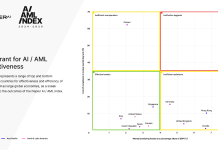The introduction of the CSRD presents escalating assurance costs and stringent compliance timelines that pose significant planning and budget challenges for companies.
According to Position Green, this is especially critical for CFOs and teams focused on budgeting and planning, as having a detailed understanding of these costs is essential for accurate financial forecasting and operational efficiency.
Securing greater financial resilience for compliance offers strategic advantages that can be uncovered by adopting long-term solutions tailored to your sustainability needs. CSRD introduces substantial costs at every stage of compliance, which include both one-time setup and annual recurring costs.
For one-off setup costs, large, publicly listed companies, especially those previously governed by the Non-Financial Reporting Directive (NFRD), face average initial costs of EUR 287,000 to establish systems for capturing and reporting expanded ESG data requirements. Smaller companies incur lower setup costs due to simpler reporting structures, though these costs still represent a significant budget item.
On the other hand, annual recurring costs average EUR 320,000 annually for NFRD-listed companies, driven by verification and reporting activities. These costs escalate with the size, complexity, and sector of the company, with financial institutions and large manufacturers facing the highest expenses.
Looking ahead, the European Commission is set to adopt reasonable assurance standards by 1 October 2028, after an assessment to determine if such a transition is feasible for both auditors and companies. The directive does not specify an exact date for when companies must comply with these requirements, but it will be determined based on the EC’s assessment and subsequent decisions.
The shift from limited to reasonable assurance is expected to significantly affect assurance cost structures. Undertakings receiving limited assurance currently face assurance costs of about 20% to 30% of their average financial assurance costs. As the CSRD progresses to reasonable assurance by 2028, this range is expected to increase.
This transition represents a major uptick in both time and resources required to meet compliance standards, making efficient, cost-effective solutions increasingly essential for controlling long-term expenses. The difference between first-time (one-off) assurance costs and ongoing (recurring) assurance costs is also critical to consider, as one-off assurance costs are approximately 30% higher due to the substantial setup efforts required.
Financial implications for strategic leadership are profound. These compliance requirements directly impact budgets, financial planning, investor relations, and competitive positioning. For CFOs, budget forecasting and cost management are essential, with one-off setup expenses reaching EUR 287,000 for large companies and ongoing assurance costs around EUR 320,000 annually. Transparent, verifiable ESG data not only strengthens investor confidence, potentially lowering the cost of capital and attracting sustainability-focused funding but also positions companies as responsible, reliable investments.
Operational efficiency and risk management are enhanced through automating compliance processes, which reduces costs and minimizes compliance risks. Effective data centralization and automation streamline reporting, cut down on redundant work, and prevent costly errors, enhancing operational efficiency and preparing companies for stringent reasonable assurance standards expected by 2028.
In conclusion, streamlining compliance to manage costs and ensure efficiency involves centralized ESG data, automated compliance checks, and ensuring audit readiness. By minimizing reliance on costly external consultants and reducing time-consuming manual efforts, integrated ESG management systems offer a cost-effective approach, consolidating data in a single platform, ensuring traceable and audit-ready reporting, and reducing the workload on internal teams.
Keep up with all the latest FinTech news here.
Copyright © 2024 FinTech Global











